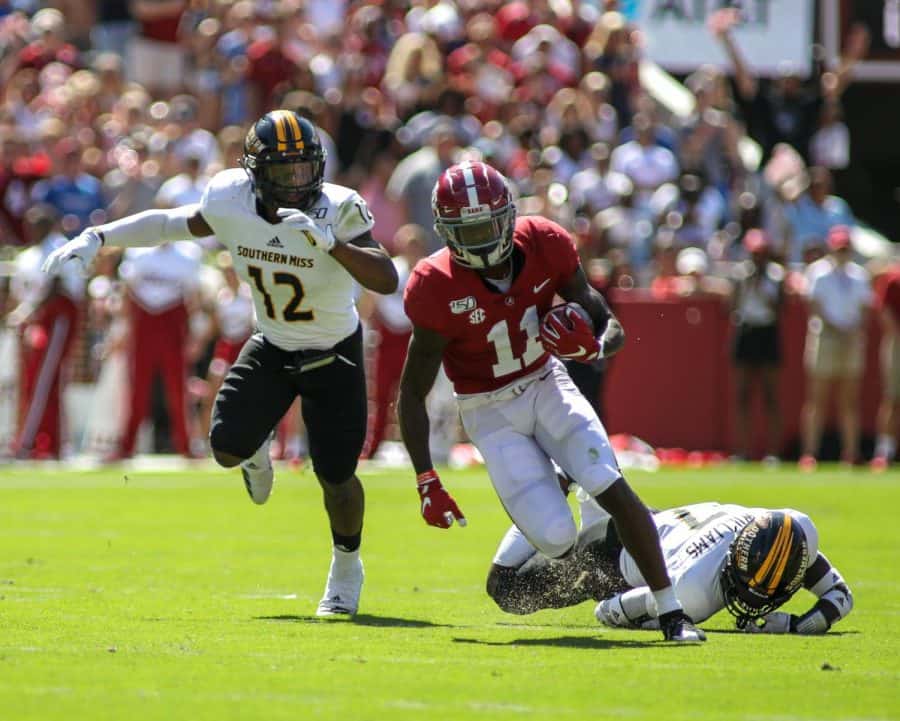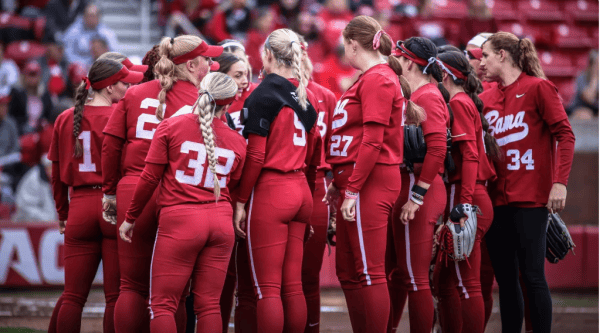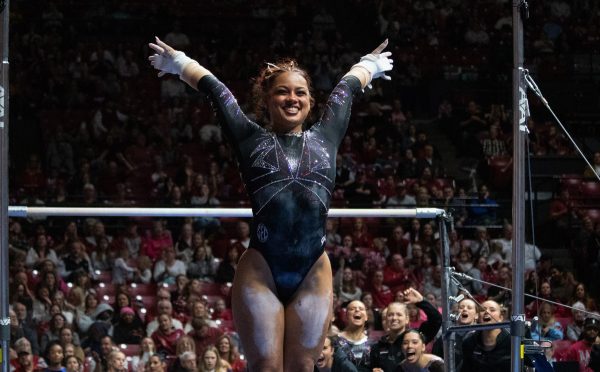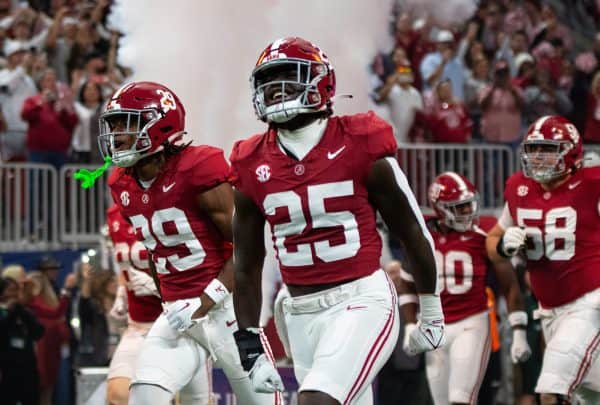Offensive playmakers have freedom to go off script
More stories from James Ogletree
Rock, paper, scissors used to decide playground disputes, dares or other petty arguments. Now it can decide which wide receiver for the Alabama Crimson Tide gets to score a touchdown.
After the team’s win over Southern Miss, a video was posted on Twitter of junior wide receivers DeVonta Smith and Jerry Jeudy playing rock, paper, scissors to decide who would run the route on the far side of the field. Jeudy won with rock, leaving Smith with the longer walk.
“That’s just a testament to what we do,” junior wide receiver Henry Ruggs III said. “We all know every position, so at any moment we can move around. I can go in the slot, or Jeudy can go outside.”
The receivers have often talked about their versatility and efforts to expand their route trees, but deciding who runs a route seconds before the ball is snapped is another level of flexibility.
With Alabama currently ranked second in the Football Bowl Subdivision with 18 passing touchdowns, the receivers are clamoring for their share of the riches.
“Once they got the play call, they knew this is the route that’s going to catch the touchdown,” Ruggs said. “So they rock-paper-scissored over who was going to run that route.”
But how can they possibly predict how the defense will align and where quarterback Tua Tagovailoa will decide to throw the ball? After thousands of repetitions in practice and conversations with Tagovailoa, Ruggs said, “you pretty much just know.”
However, he added there are certain times that coaches tell a particular receiver that he needs to run the route. It’s up to the players to work it out until coaches say otherwise.
Tagovailoa said the receivers don’t need to include him in their discussions of who will take each position. He’s worked with them for long enough that he just needs to make slight adjustments, like the speed of his drop-back, based on who’s running the route.
“They all run their routes differently, that’s why,” Tagovailoa said. “Jerry – he’ll give you a little extra move before he runs his route. I think Smitty and Ruggs are kind of similar. They’re one-cut guys, and they’re just gonna get straight. They’re gonna get vertical.”
Tagovailoa added that the personnel doesn’t matter much unless the team runs the play the same way with the same players each time.
Third down is the most common time that he will hand-pick a receiver to run a route, since the drive hinges on converting a first down and the defense is likely expecting a pass.
The quarterback also said he would need to know the receivers’ alignments beforehand on “shot plays,” or aggressive plays designed to score. In those cases he would take the receiver aside and tell him where to expect the ball to be placed, based on the structure of the play and the looks the defense has been giving.
Aside from those few circumstances, though, Tagovailoa doesn’t know all the specifications of the play until his teammates trot out to their positions.
The amount of uncertainty might be overwhelming if not for the team scripting its first 10-to-20 plays of every game. The purpose of the script, according to coach Nick Saban, is twofold. It helps get the players started off with plays they’re comfortable with and accustomed to, and it also gives insight into how the defense may play certain formations or concepts later in the game.
Tagovailoa receives the script from coaches on Friday to select his favorite plays, both in general and in specific situations.
Those situations, whether short yardage, third-and-short, third-and-long, drop-back, play-action or something else, all have their own mini-scripts. The offense sticks with the main script almost exclusively, unless it needs to briefly run a play from a mini-script.
“It’s not a hard, fast thing,” Saban said. “It’s just more of ‘here’s an idea, and here’s what we’d like to do to start the game,’ and we’re probably going to call those plays early in the game, but maybe not exactly situationally like we wrote them on a piece of paper.”
Even in Alabama’s most planned and rigid moments, it gives itself the freedom to adjust as needed.
“The coaches trust us, and we trust the coaches,” Ruggs said. “They know we know every position and at any moment we can go anywhere, and they trust we know what to do and still make a play.”











